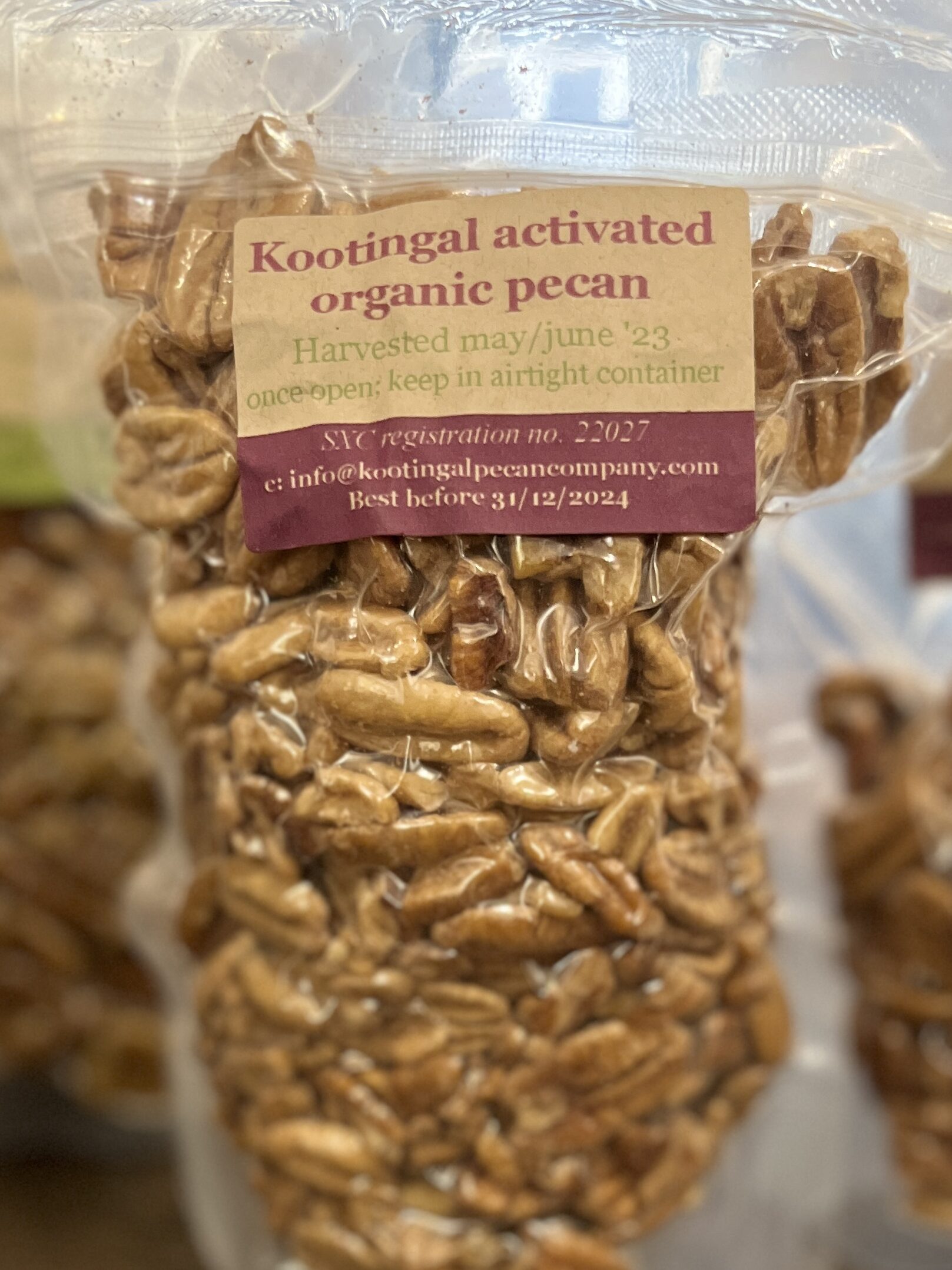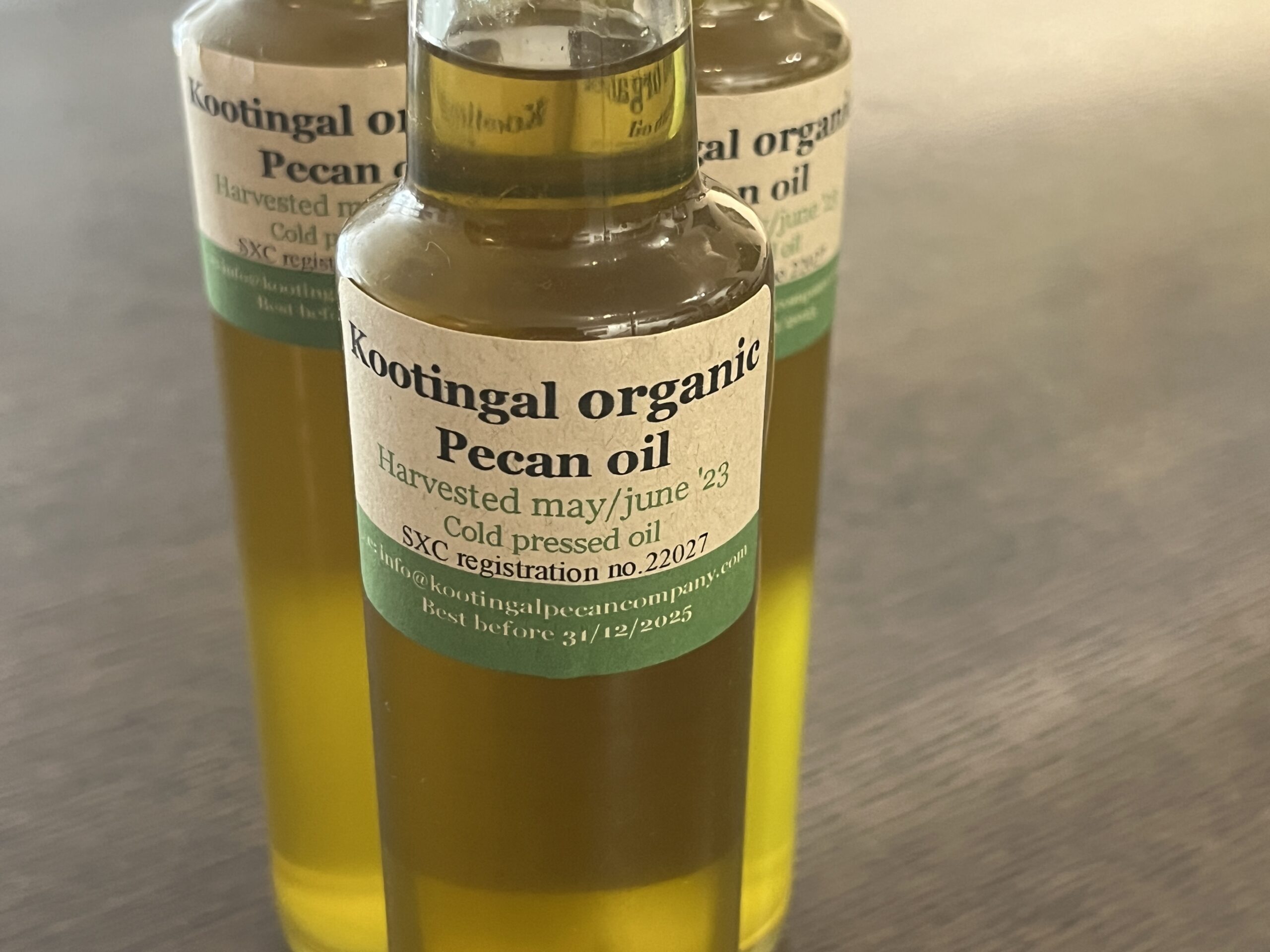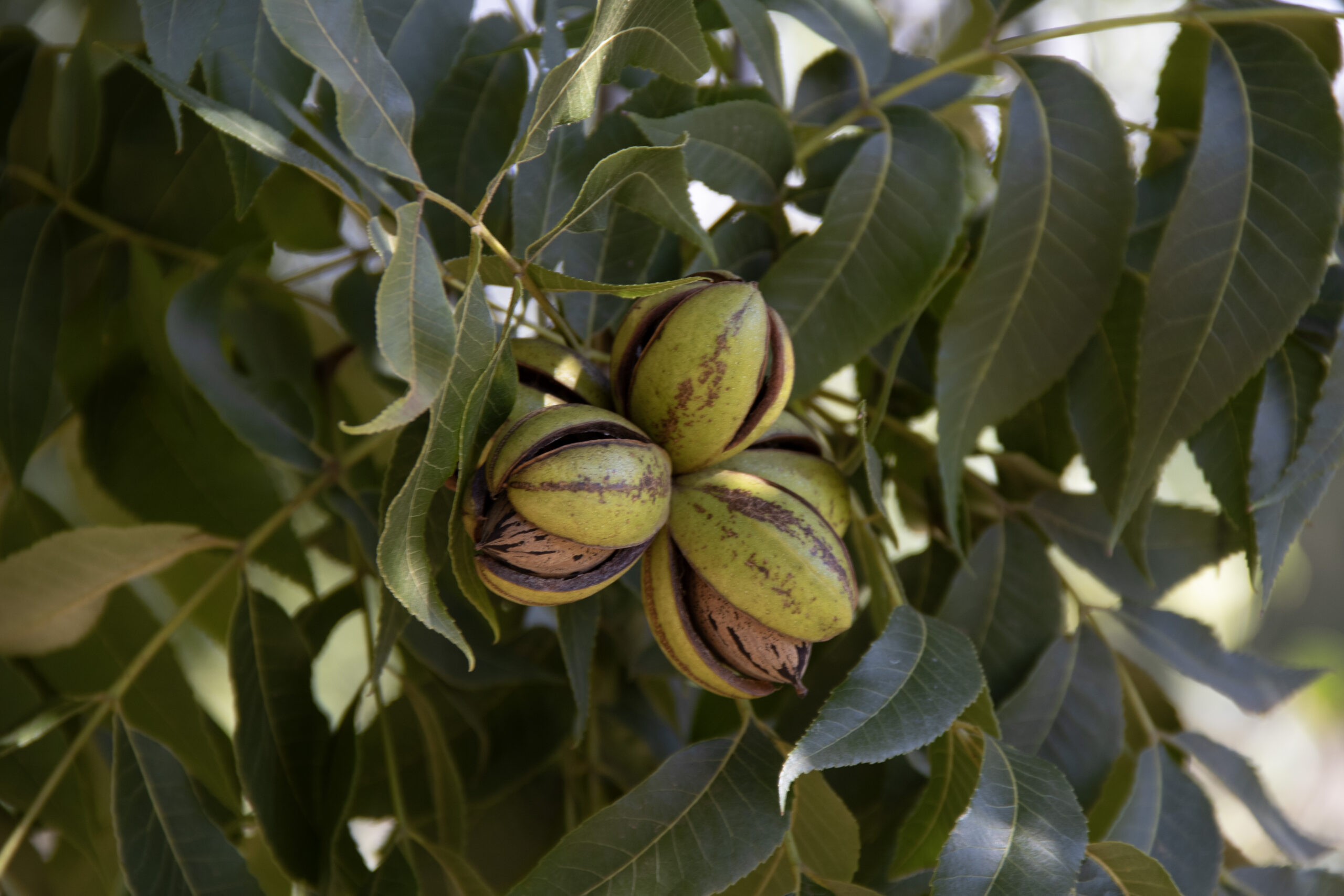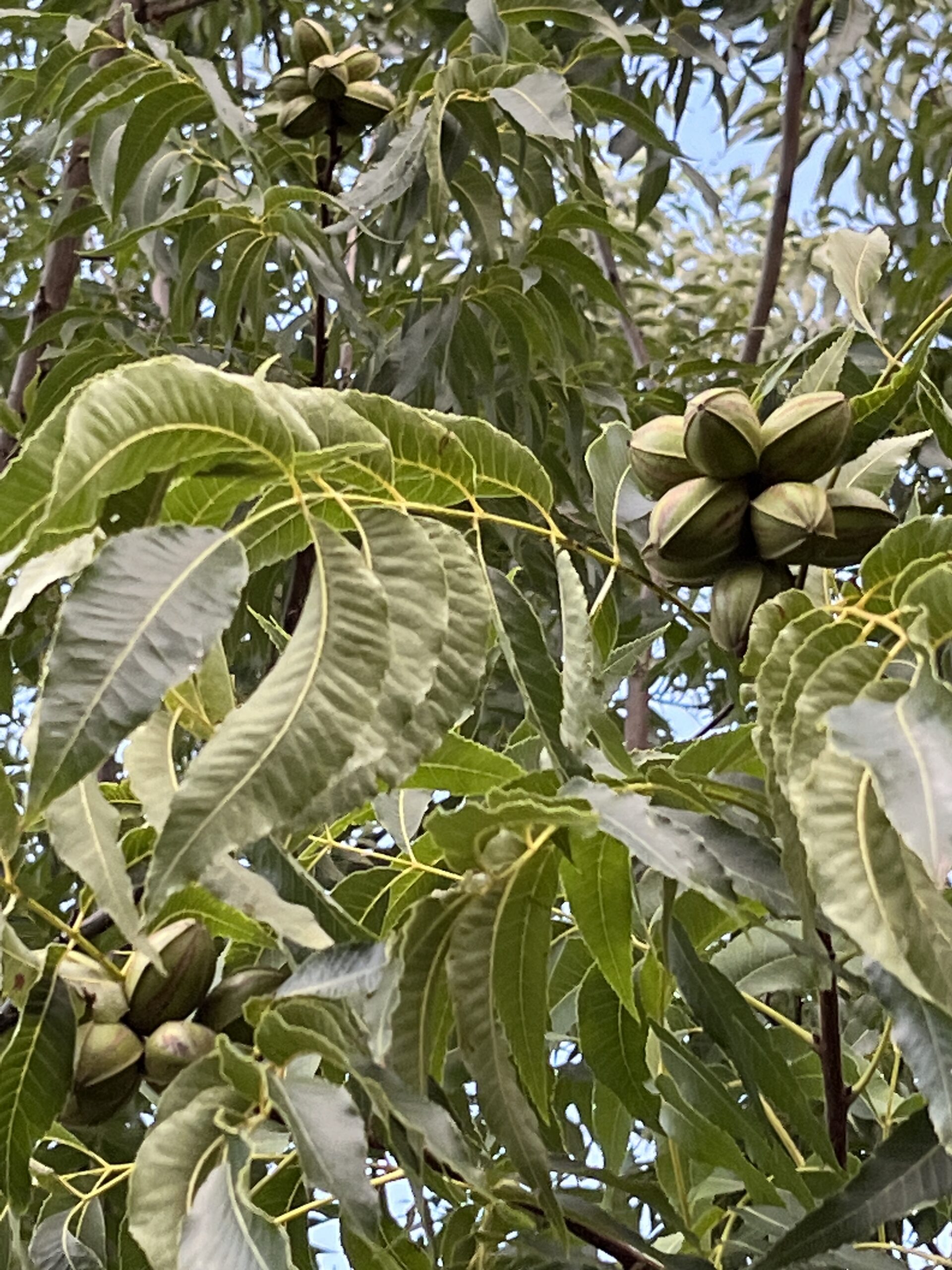
Activated Organic Pecans – Boost your nut!
Organic pecans come in many forms and can be enjoyed in many ways. This article sheds light on the process of activating nuts, nutritional activated pecans and why activation is a fantastic way to enhance the quality and nutritional benefit(s) of any nut, grain or legume. It can also increase the absorption of other nutrients that might otherwise be decreased.
Certified organic raw Australian pecans are full of nutrients, vitamins & minerals and many other health-enhancing components:
- Unsaturated healthy fats
- Omega-3 fatty acids
- Fiber
- Vitamin A
- Vitamin E
- B-Vitamins
- Plant sterols (compounds that help block your body from absorbing cholesterol)
- Plant protein
But raw nuts also contain antinutrients that are difficult to digest and can upset even the healthiest stomach and digestive tract. There are several compounds that can be found in our everyday foods that are classified as antinutrients. Nuts contain so-called phytate(s) (phytic acid), which can also be found in whole grains, seeds and legumes. This compound can decrease the absorption of iron, zinc, magnesium, and calcium and can wreak havoc on the digestive system. Phytic acid is also labelled an antinutrient because humans lack the phytase enzyme needed to break it down. Enzyme inhibitors in nuts can interfere with and inhibit our own digestive enzymes. This can mean that our digestive systems don’t absorb all the super nutrients that nuts could provide us with, whilst phytic acid can overwhelm our digestive system and cause us to feel bloated and nauseous. A diet high in phytic acid can lead to many health problems, including bone loss & tooth decay.
Besides phytic acid, there are other enzyme inhibitors such as amylase, oxalic acid and tannins, which are part of a plant’s immune system. They protect the seeds from spoiling due to invaders such as bacteria and insects and keep the seed safe until conditions for germination are ideal.
Dietitian Robbie Clark told HuffPost Australia in an interview, “Eating large amounts of raw nuts may place extra strain on your digestive system and may cause things like bloating, cramping and nausea. By activating your food, you can not only enhance absorption of nutrients but improve digestion.” Phytates are plant storage compounds that bind minerals: iron, zinc, calcium, magnesium and phosphate and, on the other hand, make them less available for absorption. Phytates inhibit (but do not entirely block) the bioavailability of these nutrients, affecting how much of the other nutrients we can absorb from that food. It’s important to know that these phytates won’t have a lasting effect once that food has been eaten, and we don’t have to worry whether these will affect our nutrient absorption later on.
So what exactly is an activated nut?
The activation process is started by soaking nuts for at least 5 hours (depending on the seed or nut) or preferably overnight in a saltwater solution using filtered water and high-quality salt such as organic Australian salt. Pecans should be soaked for 5-8 hours. This will kick the in-build germination (or sprouting) of the nut into action, and antinutrients will be released into the water that is drained after. The natural sprouting of a nut or seed is called germination, and it only comes to life when the conditions are beneficial. That means the nut or seed can be dormant and wait for conditions to be perfect. For a seed or a nut in the ground, the levels of light, oxygen, nutrients and temperature would determine whether germination begins. In the case of activating nuts, the absorption of water will start germination, and the salt will helps activate enzymes that deactivate the enzyme inhibitors present in nuts.
How you prepare foods high in phytic acid can reduce the overall amount of this antinutrient. Cooking, soaking overnight in water, sprouting (germination), fermentation, and pickling creating live foods can all break down the phytic acid so that the phosphorus can be released and absorbed by the body. Some natural bacteria in the colon contain the enzyme phytase and can also help to break it down. The human gastrointestinal tract doesn’t have enough phytase to use efficiently compared to ruminant animals such as cows, who can easily digest tons of plant matter in a day.
Once soaked, nuts are then dehydrated at a low temperature (about 65°C) for 12-24 hours before eating. However, soaked grains and legumes don’t require dehydrating and can be cooked and eaten after soaking. When making nut milk, soaked nuts are in perfect shape to be blended and drained since they are already softened enough to create beautiful creamy milk.
Despite their bad rap, phytates aren’t a reason to avoid nuts altogether. While some people may struggle with nuts and seeds, the majority of our digestive systems can handle a serving of nuts without any digestive upset. And in spite of their antinutrient activity, some research has shown that phytates possess antioxidant and anti-inflammatory effects, which have a positive impact on our bodies. It is never completely black and white, but the health benefits of activated pecans are undisputed!
So upping your organic food game means including organic Australian pecans into your salads, granola, baking, desserts and, of course, pecan pie. Bon appetite!



